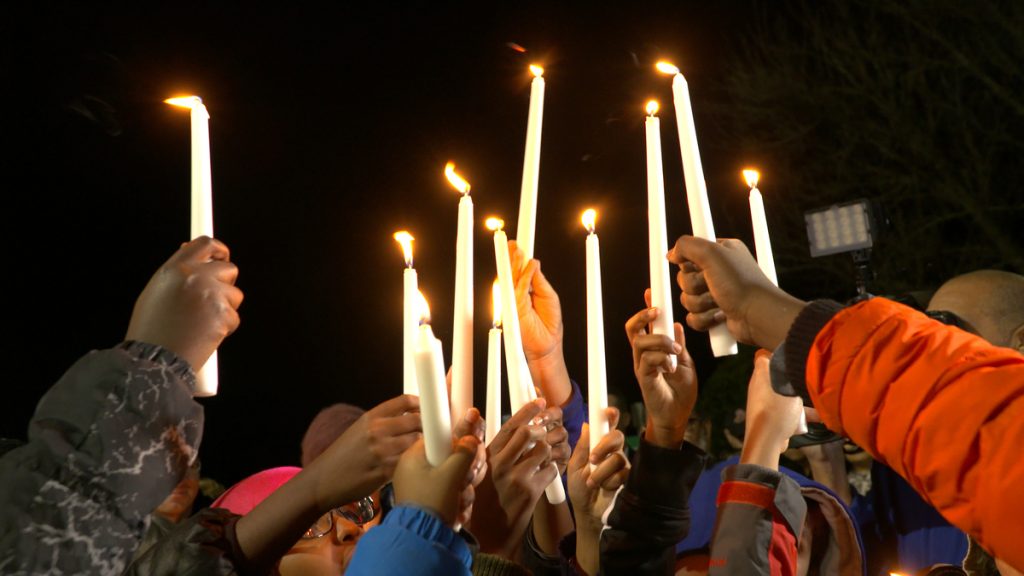It has been one year since Deah Barakat, Yusor Mohammad and Razan Mohammad Abu Salha were brutally slain at home in Chapel Hill, North Carolina. In tribute to his brother’s memory, Farris Barakat is converting the home into a community center he will be calling The Lighthouse, a reference to the meaning of Deah’s name in Arabic: light. The center is slated to open today, on the first anniversary of Deah, Yusor and Razan’s deaths. A few vigils will also be held in their honor tonight.
It is with a heavy heart that we repost below some of our stories about the killings and the broader picture they illustrate about media and society.
Death and reporting for Chapel Hill
Immediately after the shooting, social media was abuzz with the news and international media seemed to recognize the importance of what happened before the American mainstream media caught on. “The way that their deaths have been discussed and portrayed should serve to remind us that Muslims today don’t live in neutral times. Perhaps we can take note of their tragedy, and remind ourselves to look out for one another in these dark hours,” Steven Zhou wrote.
The Chapel Hill Tragedy and American Muslims’ Mental Health
The shooting highlighted the importance of mental health in our overall wellbeing. “We do not put the same weight of mental health as we do on physical health. This is the silent killer. The instability of people’s mental health goes unnoticed, and then when they do some unstable things, we are surprised and shocked. Hatred is a mental health issue. Lack of value for life is a mental health issue,” Dr. Halim Naeem wrote.
Domestic Terrorism at UNC-Chapel Hill
Arsalan Iftikhar took the events of Chapel Hill and asks readers to consider the same events if a Muslim had been behind the trigger. He took issue with the current American “terrorism double standard.” “The February 2015 UNC-Chapel Hill murders of three Muslim students is an act of ‘terrorism’.”
Laid To Rest: Powerful Images by Friend and Family from The Burial in Chapel Hill
Here is a moving and powerful photo essay from the victims’ funeral.
A Massacre That Threatens Our Home
“It is never easy to admit that you are afraid. Yet, the news of the massacre forced me to face a growing reality. Being Muslim is reason enough to incite hate. Everything about the North Carolina killings shocked me. The context. The gruesome way the students were killed. The alleged motivation.” Although activist Manal Omar has faced death threats, worked in war zones all over the world, works in conflict resolution and lives with conflict and discomfort all the time, she reflected on why the Chapel Hill killings struck real fear in her heart.
Craig Hicks, UNC killings, and How We Talk About Racism and Violence
The shooting “and the response to it have brought up a larger problem concerning mainstream media discourse: the way we talk about racism and violence. And as many writers and public intellectuals have shown already, Islamophobia (a problematic term in itself) is a racialized form of hatred. This problem has been made incredibly clear by the way prominent incidents of racial violence have been portrayed in the last few years, from the murders of Trayvon Martin, Mike Brown, and Eric Garner, to the execution of Deah, Yusor, and Razan. When incidents like these are brought into a national discussion through committed protest and activism, the discourse focuses almost entirely on the ‘facts’ of the incident and not how the incident as a story reflects a larger truth about the experiences of various communities of color in the United States,” activist Samee Sulaiman wrote.






